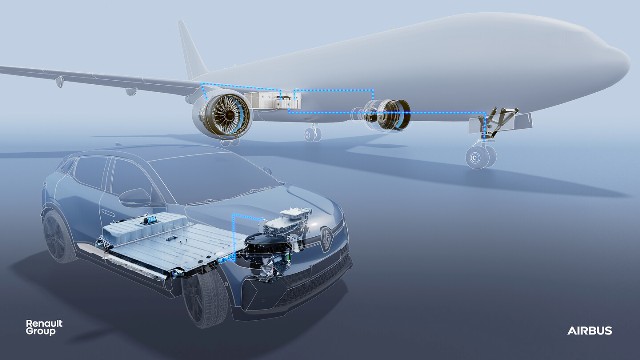
Airbus and Renault Group in Partnership to develop next-generation battery systems
Airbus and Renault Group, worldwide leaders in the aerospace and automotive industries, have signed a research and development agreement which aims at enhancing transversalities and synergies to accelerate both companies’ electrification roadmaps, improving their respective range of products. This partnership will help Airbus mature technologies associated with future hybrid-electric aircraft and will be detailed at the Airbus Summit taking place 30 November – 1 December.
As part of this partnership, Airbus’ and Renault Group’s engineering teams will join forces to mature technologies related to energy storage, which remains one of the main roadblocks for the development of long-range electric vehicles. The cooperation agreement will notably cover technology bricks related to energy management optimisation and battery weight improvement, and will look for the best pathways to move from current cell chemistries (advanced lithium-ion) to all solid-state designs which could double the energy density of batteries in the 2030 timeframe.
The joint work will also study the full lifecycle of future batteries, from production to recyclability, in order to prepare the industrialisation of these future battery designs while assessing their carbon footprint across their entire lifecycle.
Information Source: Read More “
Energy Monitors , Electric Power , Natural Gas , Oil , Climate , Renewable , Wind , Transition , LPG , Solar , Electric , Biomass , Sustainability , Oil Price , Electric Vehicles,Commodities , Shipping,


